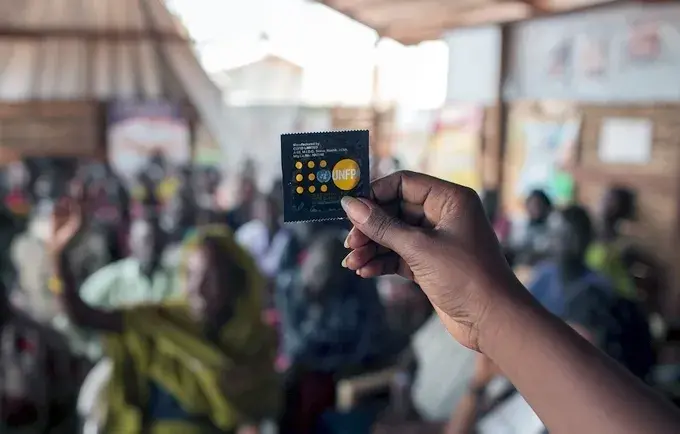Nkhata-bay-Malawi, - It only takes less than 20 minutes for Matilda Nkhata, 59 to walk to Liuzi health centre so that her granddaughter, can get ART treatment at the facility. She is 15 and in standard seven. Her granddaughter tested HIV three years ago. She suspects she was infected by her mother at birth.
Matilda was born and grew in this community. She has known Liuzi health centre for long. “This facility has transformed as regards accessing services since HIV/SRH integration started,” she says. Previously, she had to move from one room to another in order to get different services but now she gets whatever she wants in one room with one service provider.
“Kasakaniza, a term describing integration in Chichewa, has made my granddaughter to get ART services here without stigma and discrimination and no one knows what she is getting when we both get into the room to meet the provider, this is complete transformation compared to what I knew before of this facility” she explains.
Matilda earns her living through sewing clothes and sells them to her community to support some of her grandchildren.
Integration of services at Liuzi
Integration of services at Liuzi health centre started in 2011 when UNFPA Malawi supported Nkhata-bay district to select five facilities to start providing integrated SRH/HIV services. Some health workers who were trained in integration of services at Liuzi have been transferred to other facilities but those remaining still continue to provide the services in an integrated manner. This has ensured continuity of the practice.
Thokozani Steven Chaguza, a nurse midwife technician who has been working at Liuzi health centre for the past seven years recalls that alot has changed since 2012 after he was trained in providing SRH/HIV integrated of services. He said patients have more opportunities in accessing different services at a single point of contact with a service provider, a thing that was not here before.
“The gap between clinicians and nurses has been narrowed as both of them can offer similar services save for a few complicated cases that might require specialized nursing or clinical care and referral” says Thokozani.
Bringing integration to the people
At the start, patients were constantly briefed that the facility is now offering integrated services. This was also done in the community. Soon patients started to see the benefits.
“The time we spend at the facility to get services has lessened and we can get any services on any day as opposed to the past where a specific day was allocated for a service, especially when it comes to ART” says Matilda.

The benefits of integration have spilled over such that people that live more than 50 kilometers from Liuzi Health centre travel to the facility to get integrated services because their nearest health facilities are not integrating services.
Experience of Integration in Nkhata-bay
Nkhata-bay district started to integrate HIV/SRH services with five facilities in 2011. At present, three more facilities, totaling eight, which is more than 50% of facilities in Nkhata-bay district provide SRH/HIV integrated services.
“We have seen an improved relationship among health workers as they share tasks equally through an integrated daily roster thereby seeing a reduced workload”, says Austin Mwafulira, Coordinator for the Project in Nkhata-bay district. He also says, most of the facilities that provide integrated services do not have many patients to attend to in the afternoon because most of them are assisted in good time in the morning.

SRH/HIV integration in Malawi
UNFPA Malawi coordinates the SRH/HIV integration project since 2011. Initial funding was from European Union until 2014. However, SIDA also started to support the project in 2013.
Three districts of Mangochi, Dedza and Nkhata-bay were earmarked for the project with a target of five facilities each.
“We have seen significant progress in the project such that some districts like Mangochi and Nkhata-bay have scaled up the services from the initial five to eight” says Thandiwe Mijoya, the National Coordinator for SRH/HIV linkages project at UNFPA Malawi.
Ms. Thandiwe says that the scope of the project has now been strengthened where adolescents, boys and young men including key populations have become the primary beneficiaries of the SRH/HIV integrated services.
UNFPA also supported the development of the National Strategy for SRH/HIV integration to ensure further institutionalization, scale up and sustainability.
-Henry Chimbali-





